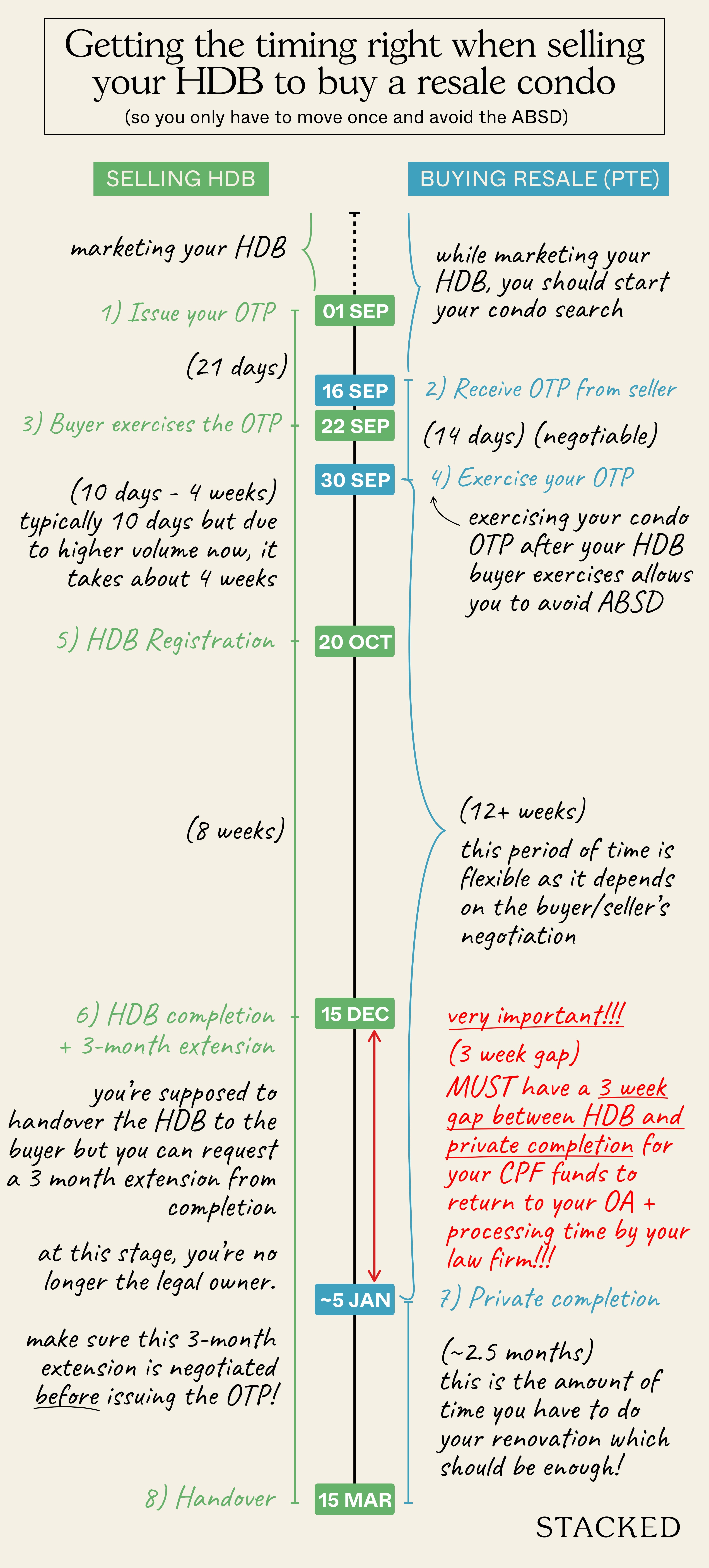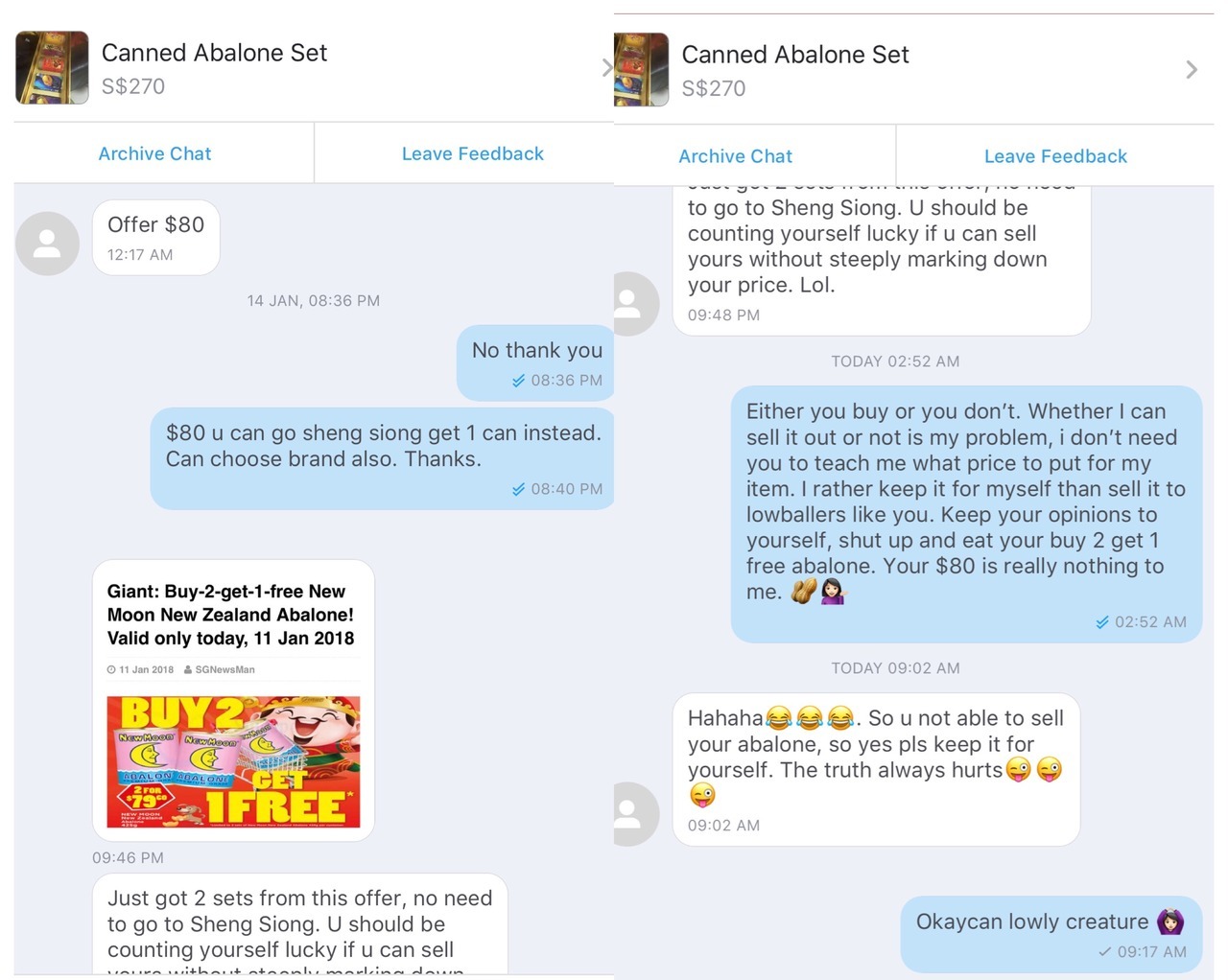4 Common But Surprisingly Complicated Seller Situations: How Would You Deal With It?
September 4, 2021

Most people think selling a home is an easy task.
It’s just listing your home online, showing people around your house, negotiating with multiple interested parties, and then signing on the dotted line.
Easy peasy lemon squeezy, right?
I’m not going to lie, it may seem that way for some very fortunate people (see this Carousell seller’s story).
But the truth is, selling can be a very emotional journey and not something as trivial as selling a phone on Carousell.
There are a lot of nuances that many people don’t think about and are not prepared for.
And well, I’d like to think we know a thing or two about the real experience when it comes to actually trying to sell your home.

After all, we did spend a good year or so trying to help direct sellers have an alternative space to list their homes (thereby cutting out the agent).
So we probably know better than anyone of the true experience of direct sellers on the ground.
So if you are harbouring thoughts on selling your home on your own – this one’s for you.
I’d like to do something different in this article, however.
I will detail out a few common scenarios for you to assess what you would do (as a seller) in that situation.
It’ll be a useful proxy to see if you are really prepared for these situations that would invariably arise.
And, of course, I’ll end each with some helpful tips from our agents that will help in dealing with that scenario.
Here goes!
- Get your asking price on the first day, what do you do next? Do you wait for a better offer?
This is a very common scenario, particularly in this hot market.
You’ve got a desirable unit – it’s near the MRT and the place is well furnished – and so you’ve set a target price in your mind of let’s say $1 million. (Listed price is $1.1 million)
You list it online, and on the first weekend, you garner quite a number of viewers.
The first person that comes to view immediately decides to offer your exact target price of $1 million.
The question is, do you wait and fish for more offers? Or do you accept the current offer because it’s seemingly a good one?
There are considerations to think about here.
If you were to wait for more offers, it doesn’t necessarily mean you may get something higher. On the other hand, if you were to wait, you could risk losing this current offer as well.
So what would you do next?
So many readers write in because they're unsure what to do next, and don't know who to trust.
If this sounds familiar, we offer structured 1-to-1 consultations where we walk through your finances, goals, and market options objectively.
No obligation. Just clarity.
Learn more here.
Tips:
Here’s our suggestion.
In scenarios such as this, you need to be very aware of the positioning of your unit.
Are you the only listing in the development? Or is the supply of similar units quite high?
What’s the last transacted price of a similar unit (stack, facing and level have to be almost equal)?
Usually, if yours is the only listing in a boutique development and you get an enquiry immediately – you can probably take that as an indication that the buyer has been keeping an eye out for this particular development.
In other words, you may have an upper hand here.
Another indication is when people view and offer straight after the viewing. This is typically a strong signal that they’ve been viewing multiple properties already, are aware of the market constraints and have a strong focus on what they want.
So take that information and use it to your advantage.

2. You know you have a good property and want to prepare in anticipation of a number of offers, how do you play the crowd to get the best deal?
This is quite a self-explanatory one, but what happens if you are in an enviable situation where you have a hot property?
It can be a highly stressful situation, play your cards wrong and you may lose offers.
It’s a cat and mouse game sometimes, so what would you do?
Tips:
You’ll have to prepare for it by making the environment competitive.
Just like how people make decisions in an unfamiliar food court by gravitating towards the stall with the longest queue, you’d want to make known to potential buyers that your unit has a lot of suitors.
It’s a similar concept to what developers have tried to do with their new launch projects. For those who’ve visited recent launches like Pasir Ris 8 will know exactly what I mean.
You’ve less than 5 minutes per person to view each unit (a crazy notion if you think about it) you are buying a million dollar property after all!
Still, there’s a reason why they do it.
It works.
So, a good sellers agent will know how to make the environment competitive.
There are a few ways to do so: Arranging all the viewings at staggered times, possibly arranging 2 groups per visit.
Make no mistake, it isn’t so easy to handle as you’d have to deal with multiple questions at the same time. But done right, and it’s definitely effective.

Property Advice5 Easy Methods To Help Set Your Selling Price When Transaction Volumes Are Low
by Ryan J. Ong3. You have too many “potential” buyers, how do you verbally vet buyers before they come down to view?
If you’ve ever sold anything on Carousell before, you might actually be familiar with such a situation – you get a whole barrage of enquiries and it can very easily get overwhelming answering all the queries.
Sometimes you spend quite a bit of time answering all the questions patiently, only to be met with a lowball offer after.
It’s extremely annoying, to say the least.
Well, it’s a very similar situation when it comes to selling your own home.
In today’s hot market, you will be getting a ton of questions. And unless you have no job and a mountain of time, you’d want to be smart about how you handle each enquiry.
So what would you do in such a scenario?
Tips:
For those in the know, there’s actually such a thing as a “serial home tourer”. These are people who have been searching for a home for the past few years, have no urgency to buy – and just enjoy perusing through people’s homes.
Think of it as a unique hobby for them on the weekend (Hint, you’d want to stay clear).
So vetting, and knowing how to do so smartly is a very important thing to do.
One tip for you is that usually, you’d find not-so-serious buyers asking about the location attributes of the place.
It’s typically a tell-tale sign that they are just exploring a new location, or they are very new to the whole home buying process.
And unless your home has absolutely no hits, again, you’d want to be selective about which potential buyers you spend your time on.
So to deal with buyers, you’d need to ask the right questions.
A good agent will ask the right questions to find out whether or not they are selling or in the process of selling their unit.
You’d want to know this because most people would require their home to be sold first before buying (partly because of the ABSD rule, and also because most would need the cash proceeds).

So if they’ve only just started to sell, it may take some time before they can even transact with you.
And if you have your own timeline to adhere to, well, you’d immediately know they wouldn’t be suitable candidates.
In a way, it’s why most people would rather deal with a buyer’s agent instead of direct buyers. You can be sure that the agents would have pre-qualified their buyers.
They want and are motivated to conduct a smooth deal, so if they’ve not done their pre-qualifiers properly it would be a wasted deal and a lost opportunity cost for them.
You really don’t want to be in a situation where you’ve agreed on a deal to buy another place thinking your own selling has been wrapped up – only to find that your buyer has loan complications and subsequently failing to push through the deal.
4. Dealing with pushbacks on the price, dealing with pushbacks on the downsides of the unit?
This is a very common scenario that many sellers don’t think about when it comes to selling their own unit – the emotions that come with negotiation.
I’m going to use Carousell as an example again here, mainly because it is a very relatable scene for many people.
Ever received a lowball offer from a buyer? (or multiple ones, for that matter).

Think back and reflect on your emotions then.
Was it one of extreme annoyance?
And isn’t it even more irritating when you feel that you’ve established a very fair price for the item you’re trying to sell?
(If you like to learn more about negotiating, Reuben has done an excellent wrap-up on an ex-FBI negotiator’s book with 5 key takeaways).
So what would you do in such a situation?
Tips:
Let’s talk about pushbacks on price.
Again, there’s a ton that we can go into, but one simple tip is to look at the closest comparables to justify your own pricing.
Many people have this fear that if they price too low, they won’t be able to command a higher price.
And to that, I’d say a big fat NO.
Remember, pricing high does not mean you’d get a high offer either. If you are pricing higher than your neighbours, this just means you are doing them a favour as it actually helps them to move their unit.
As the saying goes, the best way to sell a $2,000 watch is to put it right next to a $10,000 watch.

While this example may be extreme, this really just boils down to a common cognitive bias called anchoring.
In a study evaluating the effects of price anchoring, researchers asked two groups (students and real estate experts) to estimate the price of a home.
Brochures were provided that included information about the surrounding houses – some had normal prices and others had artificially inflated prices.
Both groups were swayed by the brochures with the higher prices. Anchoring even influenced the professionals!
So unless you have a truly unique home, you’d really want to taper your expectations of your home.
Ultimately, everyone that is selling their own home will have a certain biasness, but sometimes you need to be able to accept the market demand reality of the situation – or risk losing out on the right deal and complicating your future plans.
Final Words
Finally, what many people forget is that by selling direct, you are almost forgoing a vital part of the target market that is controlled by buyer agents.
Because you are “saving” on the commission, a buyer agent can no longer make from the deal.
And while there are good buyer agents out there that will still strive to do what’s right by their client, unfortunately, most would not want to deal with a direct seller if possible.
As mentioned at the beginning, we’ve learnt a lot about the market in the more than a year that we tried to convince the market that dealing directly was a better option.
The truth is, for many people, a property transaction is a one deal in a lifetime – and the risk is just too big to jeopardise to deal with alone.
Making the right (or wrong) move could be the difference between getting a good price, and just a regular deal.
Either way, I hope this has gone some way to helping you in crunch time seller situations. For more on the Singapore property market, follow us on Stacked.
At Stacked, we like to look beyond the headlines and surface-level numbers, and focus on how things play out in the real world.
If you’d like to discuss how this applies to your own circumstances, you can reach out for a one-to-one consultation here.
And if you simply have a question or want to share a thought, feel free to write to us at stories@stackedhomes.com — we read every message.
Sean Goh
Sean has a writing experience of 3 years and is currently with Stacked Homes focused on general property research, helping to pen articles focused on condos. In his free time, he enjoys photography and coffee tasting.Need help with a property decision?
Speak to our team →Read next from Property Advice

Property Advice We Sold Our EC And Have $2.6M For Our Next Home: Should We Buy A New Condo Or Resale?

Property Advice We Can Buy Two HDBs Today — Is Waiting For An EC A Mistake?

Property Advice I’m 55, Have No Income, And Own A Fully Paid HDB Flat—Can I Still Buy Another One Before Selling?

Property Advice We’re Upgrading From A 5-Room HDB On A Single Income At 43 — Which Condo Is Safer?
Latest Posts

Pro Why Some Central Area HDB Flats Struggle To Maintain Their Premium

Singapore Property News Singapore Could Soon Have A Multi-Storey Driving Centre — Here’s Where It May Be Built

Singapore Property News Will the Freehold Serenity Park’s $505M Collective Sale Succeed in Enticing Developers?



































0 Comments